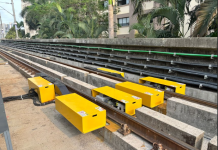WEBWIRE – Thursday, March 3, 2022
Were introducing a new way to represent a career break in the Experience section of the LinkedIn Profile, with 13 options including caregiving, and health and well-being. By adding a career break to your Profile, you can stand out to hirers by highlighting how these life experiences can apply to prospective jobs: 51% of hirers say they are more likely to contact a candidate that provides context about their career break.
For more information on what were launching, please see below:
- A LinkedIn article from Senior Product Manager, Camilla Han-He that provides more details on the news.
- LinkedIns Talent Solutions Blog, with more information on how employers can embrace inclusive hiring practices and the value candidates with career breaks can bring at work.
The new career breaks feature is rolling out to our members globally and will be available to everyone in the coming weeks.
Free resources for those looking to re-enter the workforce
To help people take the next step in their career after a career break, were also offering free LinkedIn Learning courses throughout March:
- Returning to work with a resume gap
- Preparing your family leave and return
- Negotiating work flexibility
Understanding sentiment around career breaks
To understand how people and hirers perceive career breaks, we conducted a global survey which uncovered the below key insights.
Career breaks are common, especially for women
- The majority of women (64%) have experienced a career break at some point in their career with top reasons including parental leave (22%), medical leave (17%) and mental health reasons (14%).
- In January 2022 on LinkedIn, 70% of career break-related searches and 67% of career break-related posts globally came from female members.
- Women are taking longer to re-enter the workforce. In the US, there was a 39% increase in the length of time women in the US took a career break.
Many who took a career break were parents who were faced with having to choose between work and family
- Of women who noted their last career break was due to parental leave: 48% say they felt they have had to choose between prioritizing their career over their kids and 59% worry they dont spend enough time with their children because of their career.
- 41% of women say they found it difficult to tell their employer they were taking a career break to have children and 60% of women say they were nervous about returning to work after taking a career break to have children.
Career breaks can be valuable in assessing priorities in work and life
- 53% of people say they are better at their job after having a career break. And 51% of hiring managers believe people who take career breaks can restart their careers at any time.
- 69% of people say taking a career break helped them to gain perspective and figure out what they really want from life and 68% say taking a break positively impacted their wellbeing.
People want a better way to share more about their career break
- 64% of people wish there was a way to positively represent career breaks to hirers and 52% of hiring managers believe candidates should proactively bring up their career break during the interview and highlight what they learned during that time.
- 48% of hirers think the biggest mistake candidates make when discussing their career breaks is undervaluing themselves in terms of compensation or seniority of role.
- When it comes to applying lessons learned from a career break at work, 74% of people who have taken a career break believe employers valued the skills they gained. And hiring managers agree, 50% of hiring managers believe people returning from a career break have often gained valuable soft skills and 46% believe candidates undersell them.




